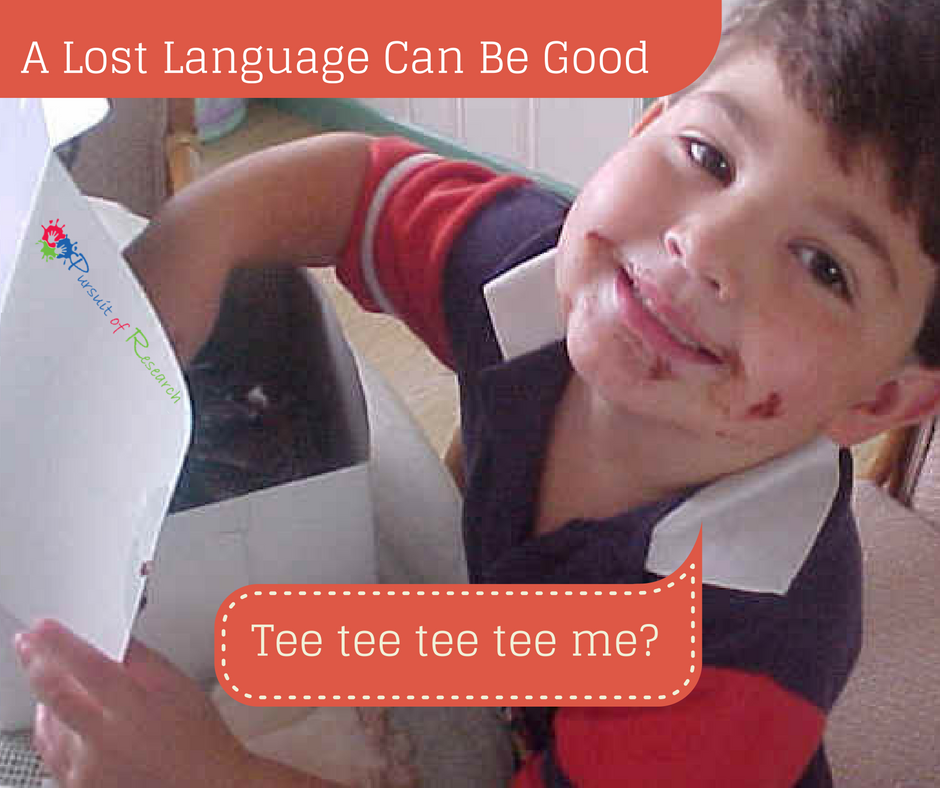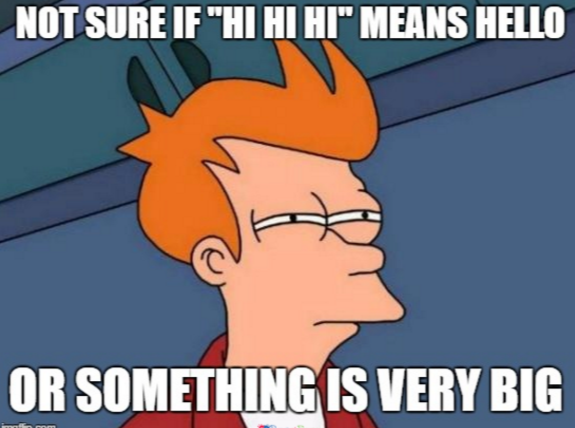There are 6,909 distinct languages. While that may sound like a lot, I believe there are far more.

Can you tell what he’s asking without me telling you?
Thousands of Languages
We communicate through language, and most of us speak at least one. If you are reading this you probably speak, or least know how to read, English. According to an article in the Linguistic Society of America as of 2009, there are 6,909 distinct languages. While that may sound like a lot, I believe there are far more.
My Lost Language
What do the words “Tee tee tee tee me” mean to you? Can you tell what the child in the photo is asking without me telling you? That’s my son Tanner when he was younger. You see when he was little, he would talk and then everyone including Tanner would look at me because I wasn’t just his mom, I was his translator.
“Tee tee tee tee me” translates to “Can I have a little (or tiny) bit?” or my exact translation was “Is it OK for me to have a tiny bit?” and it’s the language of young Tanner, my son who was diagnosed with oral and verbal apraxia. But actually in the photo he was caught sneaking a piece of cake, with his hands, and I can still hear him asking me “Tee tee tee tee me” even though he knows I caught him doing something wrong!
As my son started to speak in English he fortunately dropped his old language and moved on to talk “like the rest of us” as he puts it. (even though he still talks in sign language as well and does recall “talking with his hands” as a child)
Marie’s Dictionary
I started thinking about languages when I watched a beautiful documentary which is less then 10 minutes long called Marie’s Dictionary. It tells the interesting story about Marie Wilcox, the last fluent speaker of the Wukchumni language and the dictionary she created in an effort to keep her language, and her family’s culture, alive.
Marie’s heartwarming story to preserve history and tradition by documenting the language from her family is in direct contrast to all of us who hope only temporarily have to learn this other language of our child who is struggling to learn to talk. A language we are not born into learning, and we have no choice but to learn as our child looks to us to be their best translator. Not to say even though it’s temporary and we are forced to learn it that it doesn’t have it’s beauty as well. Any way to communicate with someone you love holds strong meaning.
Stop That Brain, You Silly!
What I find so odd is that here it is over 15 years later with nobody speaking young Tanner for most of that time and yet the words “Tee tee tee tee me” still hold the meaning to me as clearly as if they were spoken in English “Is it OK for me to have a tiny bit?” Same goes for everything on this list which is from Tanner’s communication book.
Sound Translation
- “Ju Pee” Juice please (he’d also sign for drink)
- “Die die die” Either tight or side
- “High high high” He wants a lot or it’s very big (both hands up in air)
- “Tee Tee Tee Tee” Little bit, tiny
- “Ma ma mommy” or “da da daddy” Where is mommy or daddy?
- “Eeee” eat Hungry (he’d also sign for eat)
- “Doe” Go
- “Me, me, me? No?” Can I?
- “Tee tee tee tee me?” Is it OK for me to have a tiny bit?
- “Bow” (He can say “ball” but sometimes it comes out like this)
- “Na na know” I don’t know
- “Eah” Egg
- “Tay” OK
- “Die die die die” I go outside?
I was and believe still would be the best translator in the world for the young Tanner language. Not to say I was an expert, sometimes I would be stumped too.

Just kidding -“hi hi hi” meant “very big” or “a lot” or “more”
Those of us that care for children with a communication impairment learn to understand our child’s language better than anyone else, become their translator to the rest of the world. At the same time we hope it’s just a temporary language we have to learn to understand, and that it will be a forgotten language one day. At least I believe I’m not the only one that thinks this way.